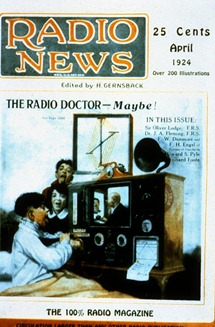 The definition of telemedicine is “the use of telecommunication technologies to deliver medical information and services to locations at a distance from the care giver or educator.†So what’s the definition of telepharmacy? I’m not quite sure, but replacing “medical information and services†with “pharmacy information and services†seems reasonable.
The definition of telemedicine is “the use of telecommunication technologies to deliver medical information and services to locations at a distance from the care giver or educator.†So what’s the definition of telepharmacy? I’m not quite sure, but replacing “medical information and services†with “pharmacy information and services†seems reasonable.
I saw a lot of interest in telepharmacy at the ASHP Midyear meeting in New Orleans last month. Based on all the activity one might think it’s a new concept. Au contraire, telemedicine has been around since at least the 1960’s, when NASA built this technology into spacecraft and astronauts’ suits to monitor physiological parameters. Crud, one could argue that the concept has been around much longer than that (see image to the right from April 1924).


